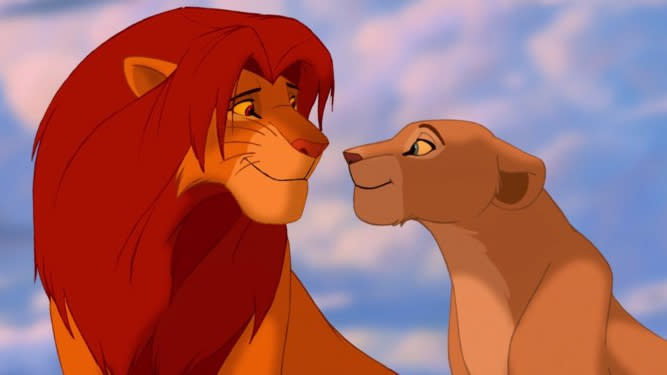It should be 'The Lion Queen' not 'The Lion King', says top zoologist

If The Lion King reflected the real dynamics of a pride of lions, Nala would be the protagonist of the story, according to a zoologist who is an expert in the species.
Craig Packer, director of the Lion Research Center at the University of Minnesota, told National Geographic that lionesses are the “core” and the “heart and soul” of prides in the wild.
Lion societies are matrilineal, meaning that women call the shots, while male lions come and go from the group.
Beyoncé Knowles-Carter will voice Nala in Jon Favreau’s new Lion King, with rapper and actor Donald Glover providing the vocals for Simba.
Read more: Beyoncé and Donald Glover sing in Lion King advert
Packer said that, in a real pride, it would be Sarabi - Mufasa’s mate - who discussed handing over the lands to her offspring.

He also pointed out that, had Simba genuinely returned to the pride into which he was born as he does in the film, he would only be able to mate with lions to whom he was related - including Nala.
Read more: How the original Lion King was rescued
Science journalist Erin Biba, who interviewed Packer for the piece, wrote on Twitter that the researcher was “immediately available” to speak to her when she got in touch.
Biba said: “He Skyped me almost instantly from a camp in Kenya and said he's been waiting for someone to ask him this question since the original film came out.
“Anyway, if The Lion King were real, Nala would be the star.”
Anyway, if The Lion King were real, Nala would be the star, Sarabi would be holding her up saying everything the light touches is our kingdom, Simba would have left and never come back, and when Nala got old enough Sarabi would have carved out a territory for her to rule.
— Erin Biba (@erinbiba) July 8, 2019
Packer said that “Simba would have left and never come back” in a real lion dynamic and added it would be more likely that Mufasa, as the dominant male, would have a darker mane than the villainous Scar.
“Growing a black mane is a signal you’re genetically superior,” he said, adding that the mane is “a signal of quality”.
Read more: Original Lion King screenwriter sceptical about remake
Scar’s dislike of Mufasa would also be a problem in the real world, in which pairs or trios of males band together in order to defend the pride of females with which they wish to mate.
The competition between the two of them would simply let another group of males take charge.
Packer said: “You have to have a partner in arms to withstand the challenges of all the other males that want to take over your family and kill your babies.”

James Earl Jones will reprise his role as Mufasa in the new film, with Chiwetel Ejiofor voicing Scar and Alfre Woodard playing Sarabi.
Billy Eichner and Seth Rogen will portray Timon and Pumbaa, while comedian John Oliver provides the voice of hornbill Zazu.
Despite criticisms of the trailer, Rogen has maintained the film is not an “identical remake” of the classic 1994 animation and the movie will be half an hour longer.
The Lion King will be released in UK cinemas on 19 July.


